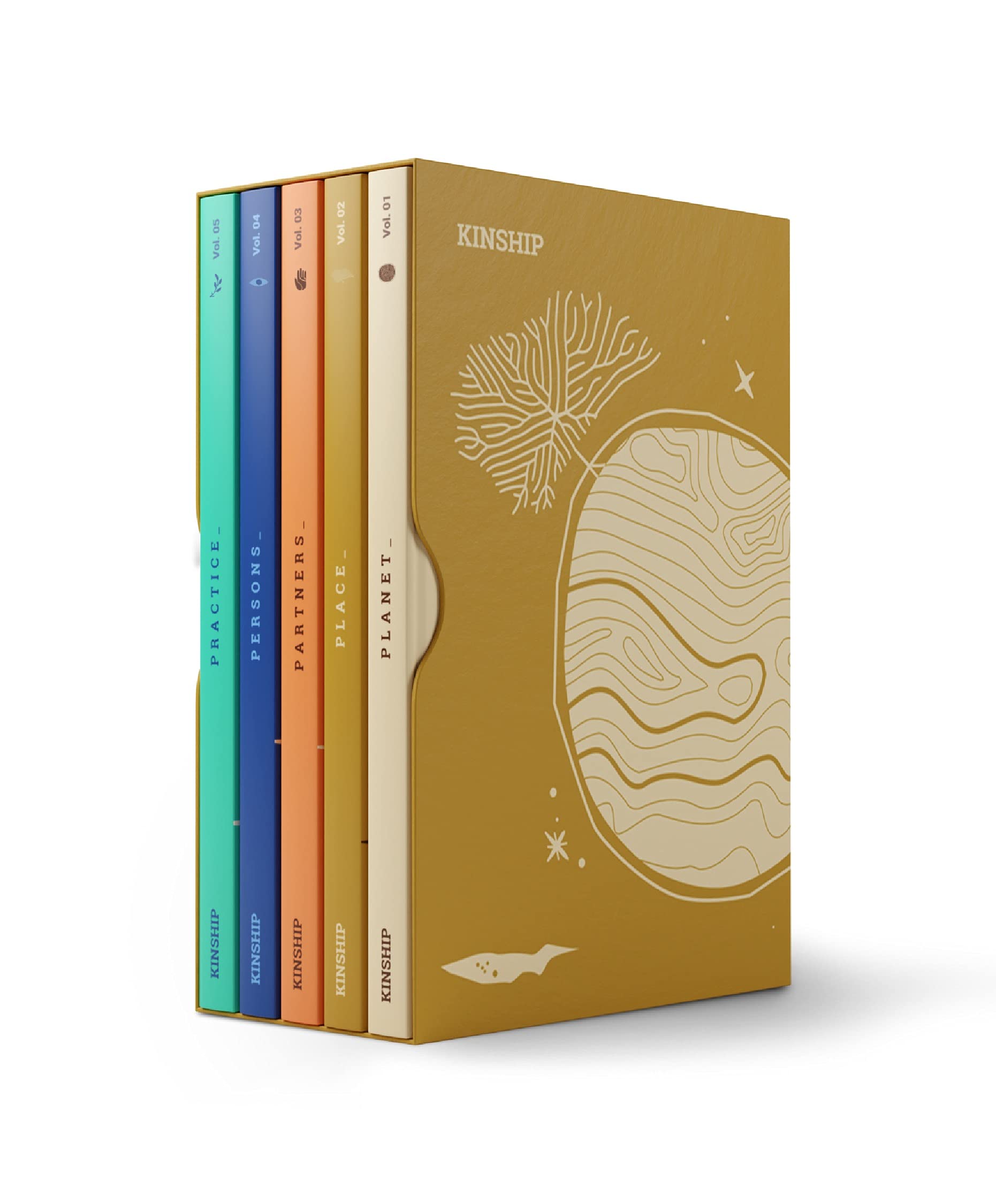
Categorii: Necatalogate, Neclasificat
Limba: Engleza
Data publicării: 2021
Editura: Center for Humans and Nature
Tip copertă: Paperback
Nr Pag: 942
ISBN: 9781736862551
Dimensiuni: l: 13.4cm | H: 19.7cm | 12.7cm | 1434g

For readers of Braiding Sweetgrass and The Overstory
From The Center for Humans and Nature, a collection in five volumes: essays, interviews, poetry, and stories of solidarity that highlight the interdependence that exists between humans and nonhuman beings
We live in an astounding world of relations. We share these ties that bind with our fellow humans―and we share these relations with nonhuman beings as well. From the bacterium swimming in your belly to the trees exhaling the breath you breathe, this community of life is our kin―and, for many cultures around the world, being human is based upon this extended sense of kinship.
Kinship: Belonging in a World of Relations is a lively series that explores our deep interconnections with the living world. More than 70 contributors―including Robin Wall Kimmerer, Richard Powers, David Abram, J. Drew Lanham, and Sharon Blackie―invite readers into cosmologies, narratives, and everyday interactions that embrace a more-than-human world as worthy of our response and responsibility. These diverse voices render a wide range of possibilities for becoming better kin.
Contents:
From the recognition of nonhumans as persons to the care of our kinfolk through language and action, Kinship: Belonging in a World of Relations is a guide and companion into the ways we can deepen our care and respect for the family of plants, rivers, mountains, animals, and others who live with us in this exuberant, life-generating, planetary tangle of relations.
Proceeds from sales of Kinship benefit the nonprofit, non-partisan Center for Humans and Nature, which partners with some of the brightest minds to explore human responsibilities to each other and the more-than-human world. The Center brings together philosophers, ecologists, artists, political scientists, anthropologists, poets and economists, among others, to think creatively about a resilient future for the whole community of life.